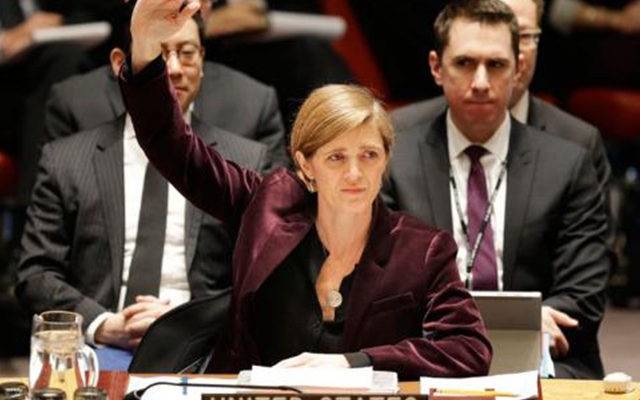Michael Flynn led Trump’s transition team in a vigorous attempt to block an anti-Israel UN resolution that was supported by Barack Obama.
Several weeks before entering office, US President Donald Trump’s transition team launched a diplomatic campaign to try and block the United Nations Security Council’s (UNSC) vote condemning Israel’s presence in Judea and Samaria.
Foreign Policy (FP) reported that Michael Flynn, Trump’s then-national security adviser designate, headed a diplomatic initiative, together with other members of the transition team, to pressure the Obama administration into exercising its veto power against the UNSC resolution.
They also pressed Egypt and Britain to oppose the resolution.
According to the report, on the day of the UNSC vote, Trump’s transition team conducted a “vigorous diplomatic bid,” as the magazine described it, requesting the contact information of ambassadors and foreign ministers of the 14 countries that are members of the Security Council.
A former State Department official said that the request was ultimately denied, citing a fear that the transition team would hinder the process, which ultimately led to the passing of UNSC Resolution 2334. The resolution condemned Israeli communities in eastern Jerusalem, Judea and Samaria, with US approval through its abstention.
An American official told FP that Nikki Haley, current US ambassador to the UN, tried reaching Samantha Power, her predecessor, by calling her office and cell phone number. Power’s advisers suspected Haley would try to persuade her to veto the resolution, and she did not take the calls.
Flynn, who resigned from his post last week after serving for only a month amid controversy over his contacts with Russia, also placed calls to foreign ambassadors, including those from Uruguay and Malaysia. Malaysia was one of four countries that sponsored the resolution.
FP said the Trump administration’s first venture into diplomacy was conducted with “brusque disregard for diplomatic protocol and a hasty pressure campaign that changed few, if any, minds.”
The anti-Israel resolution passed, with 14 out of the 15 UNSC members voting in favor of the resolution, while the US chose to abstain instead of casting its veto.
At the time of the vote, Trump publicly came out against it, saying the resolution “should be vetoed” and that US conduct at the UN will be different under his leadership.
By: United with Israel Staff
